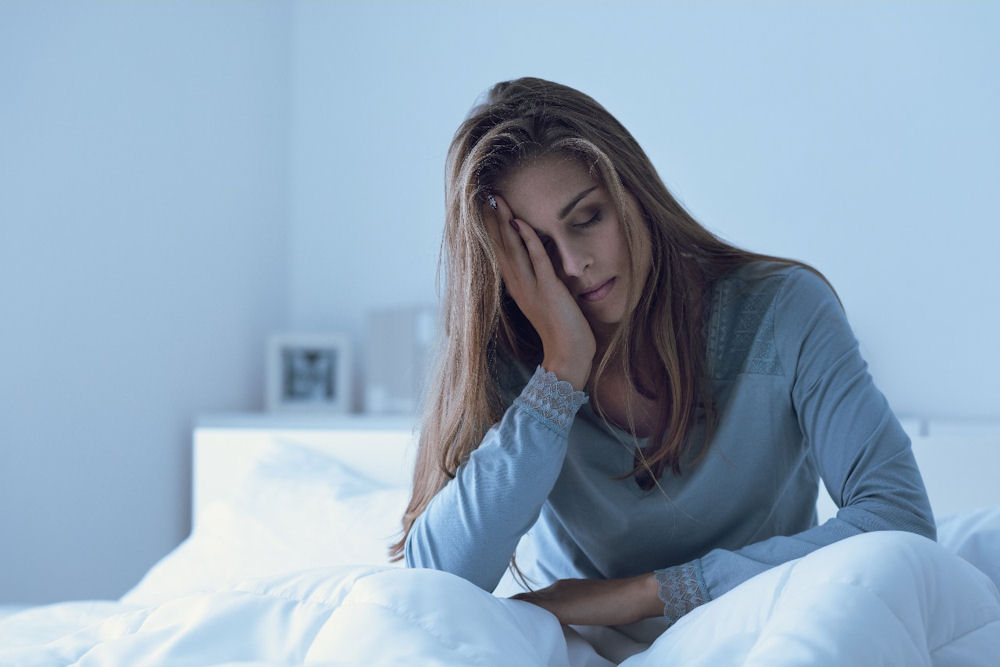
Alcohol Withdrawal Insomnia is a frequent and challenging symptom during alcohol detox. Alcohol disrupts the brain’s natural sleep-wake rhythm, and when drinking stops abruptly, the body struggles to regain normal sleep patterns. This can lead to difficulties falling asleep, frequent awakenings, or poor-quality restorative sleep. Recognizing different types of insomnia—such as difficulty initiating sleep, staying asleep, or early morning awakenings—helps in managing these issues.
Adopting healthy sleep routines, relaxation methods, and seeking professional support can significantly reduce symptoms. Surf City Detox’s medical detox center in Huntington Beach, California, offers supervised care that addresses both insomnia and withdrawal, supporting successful recovery.
How Is Sleep Affected During Drug Or Alcohol Detox?
Alcohol and other substances significantly disrupt the body’s natural sleep cycle, leading to reduced sleep quality and less restorative deep sleep. During detox, the central nervous system undergoes a critical readjustment as it learns to function without these substances, often resulting in various sleep disturbances such as insomnia, frequent awakenings, and restless sleep.
Common sleep issues during detox include:
- Difficulty falling asleep
- Frequent nighttime awakenings
- Reduced restorative deep sleep
Additionally, withdrawal symptoms like anxiety, irritability, restlessness, and physical discomfort can worsen sleep problems. While these challenges are common during detox, they can be effectively managed with appropriate care, medical support, and healthy sleep habits.
Types of Sleep Disturbances During Detox
During detox, individuals commonly experience several types of sleep disturbances that can interfere with recovery. These include difficulty falling asleep, known as initial insomnia, frequent awakenings throughout the night called middle insomnia, waking up too early in the morning, referred to as terminal insomnia, and feeling tired or unrefreshed even after sleeping, which is non-restorative sleep.
Sleep disruptions not only affect physical health but can also increase anxiety and irritability. Fortunately, with proper medical treatment, behavioral strategies, and supportive care, these sleep issues often improve significantly over time, aiding a smoother recovery process.

Waking up too early and being unable to go back to sleep.
Feeling unrefreshed upon waking despite spending adequate time in bed.
These disturbances can be temporary but may persist if not addressed appropriately.
Insomnia After Quitting Drinking
After quitting alcohol, many individuals experience insomnia as their bodies work to rebalance without alcohol’s sedative effects. Although alcohol initially helps people fall asleep faster, it disrupts the sleep cycle by reducing restorative REM sleep and causing more frequent awakenings during the night. When alcohol consumption stops, the nervous system can become overactive, leading to difficulty falling asleep and staying asleep throughout the night. This adjustment period varies widely in both duration and severity among individuals.
Insomnia during alcohol withdrawal is typically temporary, but it can be challenging and impact recovery. It’s important to monitor symptoms closely and seek professional help if sleep issues persist. Persistent insomnia may signal an underlying sleep disorder that needs proper diagnosis and treatment.
Key points to consider:
- Alcohol disrupts REM sleep and causes fragmented rest
- Nervous system overactivity leads to sleep difficulties
- Insomnia duration varies per individual
- Persistent issues may require medical evaluation and care
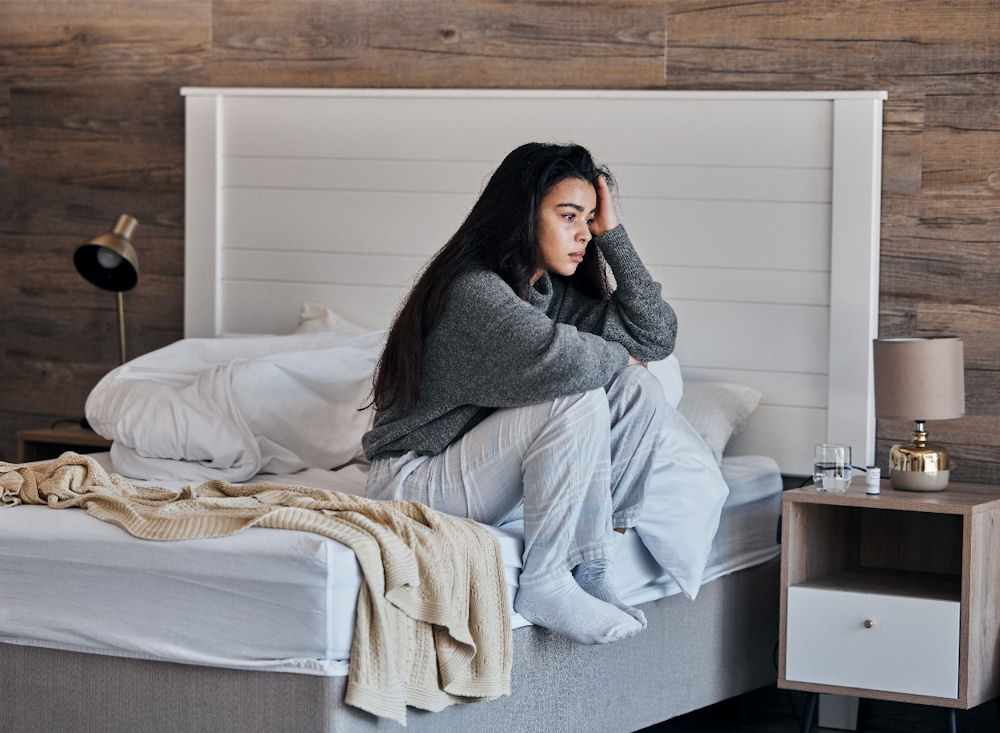
How To Cope With Insomnia During Detox
Managing insomnia at our detox center requires a combination of healthy sleep habits, stress-reducing techniques, and, when appropriate, medical intervention. Establishing a regular sleep schedule, creating a calming bedtime routine, and avoiding stimulants like caffeine can help. In more severe cases, healthcare professionals may provide non-addictive medications or therapies to support restful sleep and promote overall recovery.
Go to bed and wake up at the same time every day to regulate your body’s internal clock.
Ensure your bedroom is dark, quiet, and cool. Consider using earplugs, an eye mask, or a white noise machine to block out disturbances.
Avoid caffeine, nicotine, and heavy meals close to bedtime.
Practice deep breathing, meditation, or gentle yoga to reduce stress and promote relaxation.
Reduce exposure to screens at least an hour before bedtime to minimize blue light interference with sleep.
Some individuals may turn to over-the-counter sleep aids or other substances; however, these can have their risks and should be used cautiously.
Implementing these strategies can help alleviate insomnia symptoms during detox.
Treatment for Sleep Disturbances During Medical Detox
In a medical detox setting, healthcare professionals offer targeted treatments to manage sleep disturbances safely and effectively. These may include non-habit-forming sleep aids, ongoing monitoring, and therapeutic support to address both physical and emotional symptoms. Medical teams can also implement behavioral therapies, such as cognitive-behavioral therapy, to help people with sleep disturbances, such as insomnia, restore healthy sleep patterns during and after withdrawal.
- Medication-Assisted Treatment: Prescribing non-habit-forming medications to aid sleep without the risk of addiction.
- Cognitive-behavioral therapy for insomnia (CBT-I): A structured program that helps individuals identify and replace thoughts and behaviors that cause or worsen sleep problems.
- Monitoring and Support: Continuous observation to ensure safety and adjust treatments as needed.
Professional treatment ensures that sleep disturbances are addressed safely and effectively during detox.
How To Stop Alcohol Insomnia and Get Some Sleep
Overcoming alcohol-induced insomnia requires both lifestyle adjustments and professional guidance. Establishing consistent sleep routines, creating a calming bedtime environment, limiting screen time, and avoiding stimulants are essential steps. In more severe cases, medical professionals can offer therapies or non-addictive medications to support restful sleep. Combining healthy habits with expert care increases the likelihood of successful recovery.
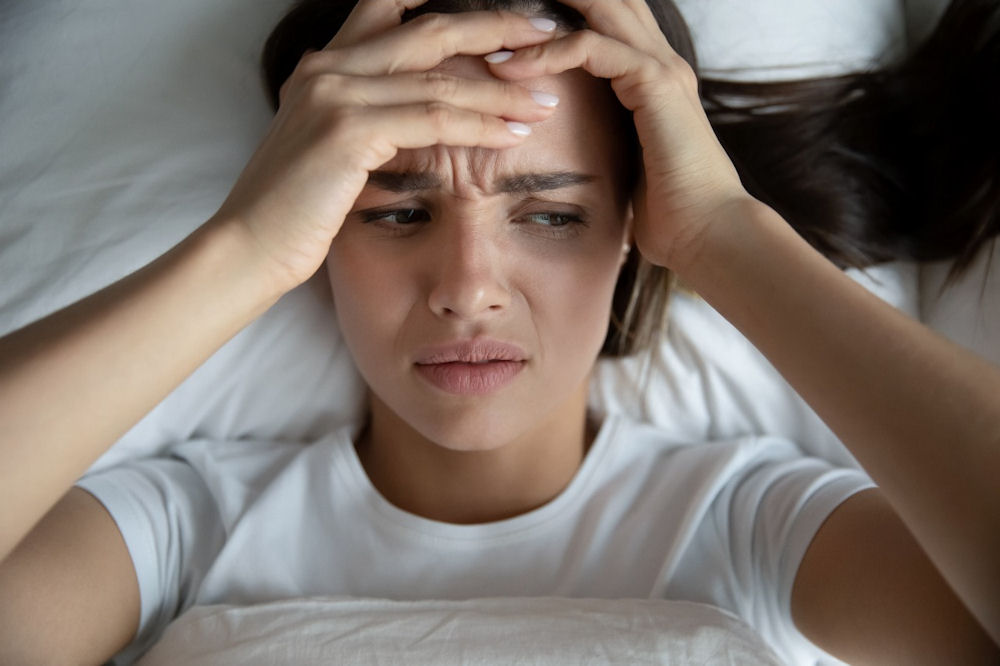
Slowly decreasing alcohol intake under medical supervision can minimize withdrawal symptoms, including insomnia.
Engaging in addiction counseling to address underlying issues contributing to alcohol use and sleep disturbances.
Participating in support groups or counseling to maintain sobriety and manage stress.
Implementing these approaches can significantly improve sleep quality during recovery.
How Long Does It Take for Sleep To Improve After Stopping Drinking?
The timeline for sleep improvement after quitting alcohol varies widely among individuals, influenced by factors such as the severity and duration of alcohol use, overall physical and mental health, and the presence of co-occurring conditions like anxiety or depression. Some people begin to experience better sleep within days or weeks, while for others, it may take several months or longer for sleep patterns to fully normalize. Maintaining patience, adopting healthy sleep routines, and seeking professional support can greatly enhance recovery and help restore restful sleep more effectively..
- Short-Term: Some individuals may notice improvements in sleep within a few days to weeks after quitting alcohol.
- Medium-Term: For others, it may take several weeks to a few months for sleep patterns to stabilize.
- Long-Term: In some cases, it may take up to a year for sleep to fully normalize, especially if there were pre-existing sleep disorders.
Patience and consistent healthy sleep practices are essential during this period.
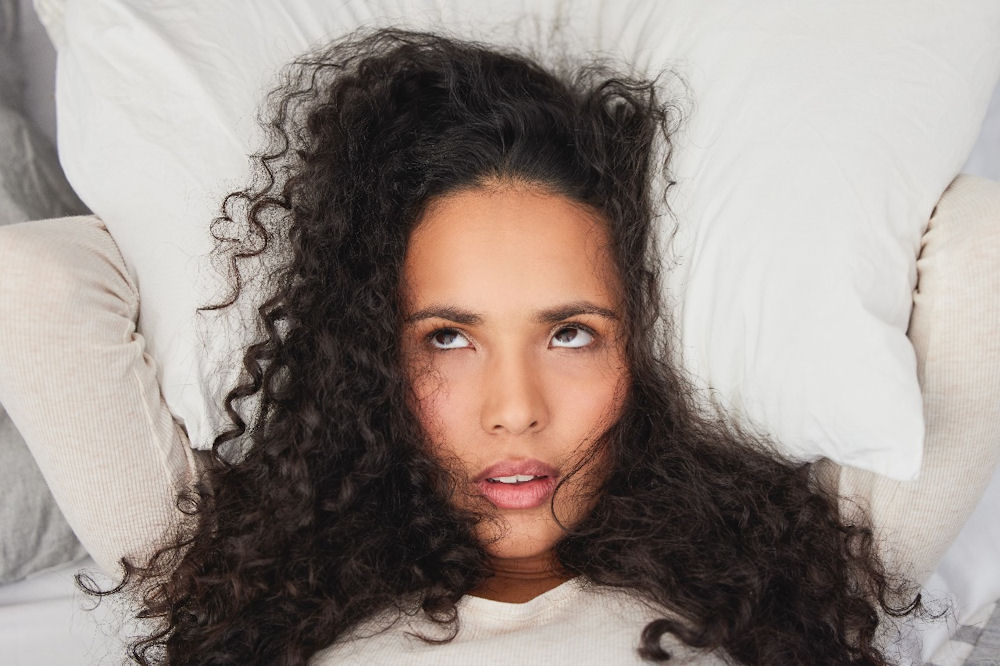
Safe and Professional Detox is Available in California
For individuals in California struggling with alcohol withdrawal and insomnia, professional detox services offer essential support and relief. Surf City Detox in Huntington Beach, CA, provides medically supervised detox programs designed to help manage uncomfortable withdrawal symptoms—especially sleep disturbances—in a safe and structured environment.
Medical detox ensures round-the-clock supervision by healthcare professionals trained to address physical and psychological symptoms, including insomnia, anxiety, and restlessness.
Each person receives a customized care plan that accounts for their unique health history and substance use patterns. This tailored approach improves sleep quality and supports overall well-being during detox.
Clients benefit from access to counseling, therapy, and peer support groups that encourage lasting recovery and teach strategies for developing healthier sleep routines.
Surf City Detox also offers holistic therapy that supports recovery by addressing the mind, body, and spirit. This approach uses techniques like yoga, meditation, and acupuncture to reduce stress, improve emotional balance, and enhance physical healing. By complementing medical treatments, holistic therapy promotes long-term sobriety and overall wellness.
Seeking professional help at a trusted facility like Surf City Detox can greatly enhance comfort during detox, reduce risks, and lay the foundation for long-term sobriety and better sleep.
Our team is composed of experienced and compassionate professionals dedicated to guiding each client through a safe and supportive detox journey. Our staff includes licensed medical doctors, nurses, therapists, and addiction specialists who work collaboratively to create individualized treatment plans tailored to each person’s needs. With a focus on holistic healing, our team addresses both the physical and emotional aspects of withdrawal. We prioritize client safety, comfort, and dignity throughout the detox process. At Surf City Detox, you’re not just a patient—you’re part of a community committed to helping you take the first step toward lasting recovery.
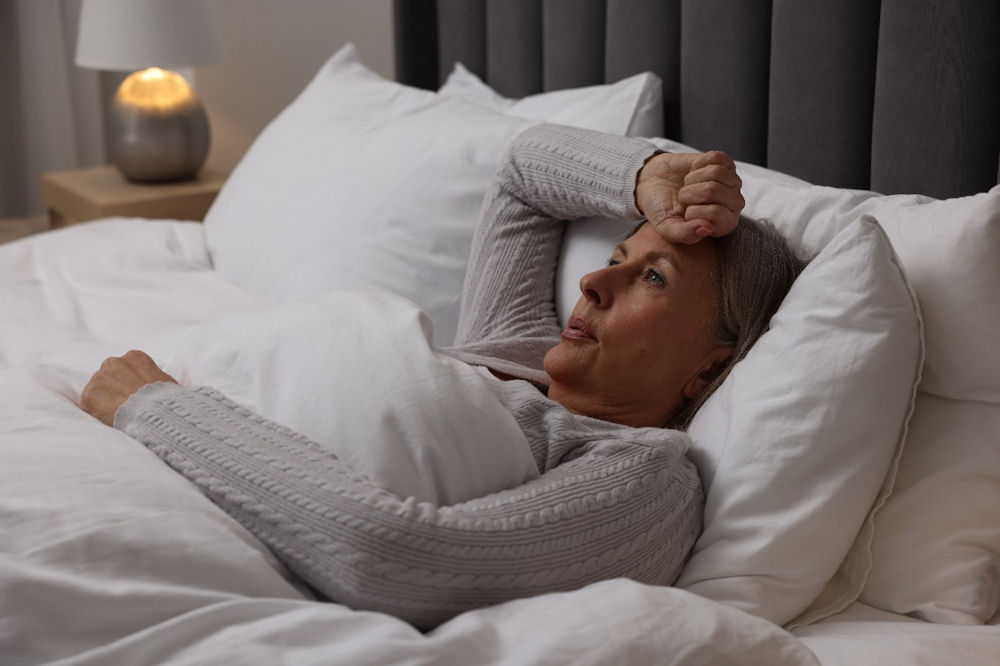
If you’re experiencing alcohol withdrawal insomnia, it’s crucial to seek professional help. Organizations like Surf City Detox provide comprehensive detox services to support your journey to recovery. If you or a loved one is struggling with alcohol withdrawal or insomnia, contact us today. Our compassionate team is here 24/7 to provide support, answer your questions, and help you begin a safe, medically supervised detox. Take the first step toward recovery—reach out now.
Dr. Eric Chaghouri is a 2007 graduate from the University of California, Los Angeles, where he earned his B. A. in Biology with Summa Cum Laude honors. While at UCLA, he helped the men’s varsity volleyball team earn a National Championship in 2006. He was named the UCLA Scholar-Athlete of the Year in 2007.
He earned his medical degree from the Keck School of Medicine in 2011. He completed his internship training in 2008 at Cedars-Sinai Medical Center and the remaining three years of residency in general adult psychiatry at the Los Angeles County and University of Southern California Medical Center. He served as the Chief Resident in psychiatric emergency services during his fourth year of residency. He also served as Resident Clinical Instructor and Volunteer Faculty in the Department of Psychiatry at the Keck School of Medicine.
After completing residency, Dr. Chaghouri accepted a fellowship position in forensic psychiatry at the prestigious USC Institute of Psychiatry and Law. His scholarly activities included publishing in Legal Digest and presenting research findings at the Keck School of Medicine annual conference.
Since completing his forensic psychiatry fellowship, he has established a successful and thriving practice in Southern California, focusing on treatment of co-occurring psychiatric and addictive disorders. He has developed a strong clinical team of practitioners who share similar goals and philosophies regarding psychiatric treatment, including providing cutting-edge interventional treatments for psychiatric conditions. He works in an array of capacities with attorneys, courts, and other parties in actual or potential litigation. He also has extensive experience consulting and providing opinions on psychiatric issues for major television networks. Dr. Chaghouri’s interests include addiction medicine, substance use disorders, forensic psychiatry, medical ethics, psychological autopsy, gender wellness, and evidence-based treatment of psychiatric conditions.



